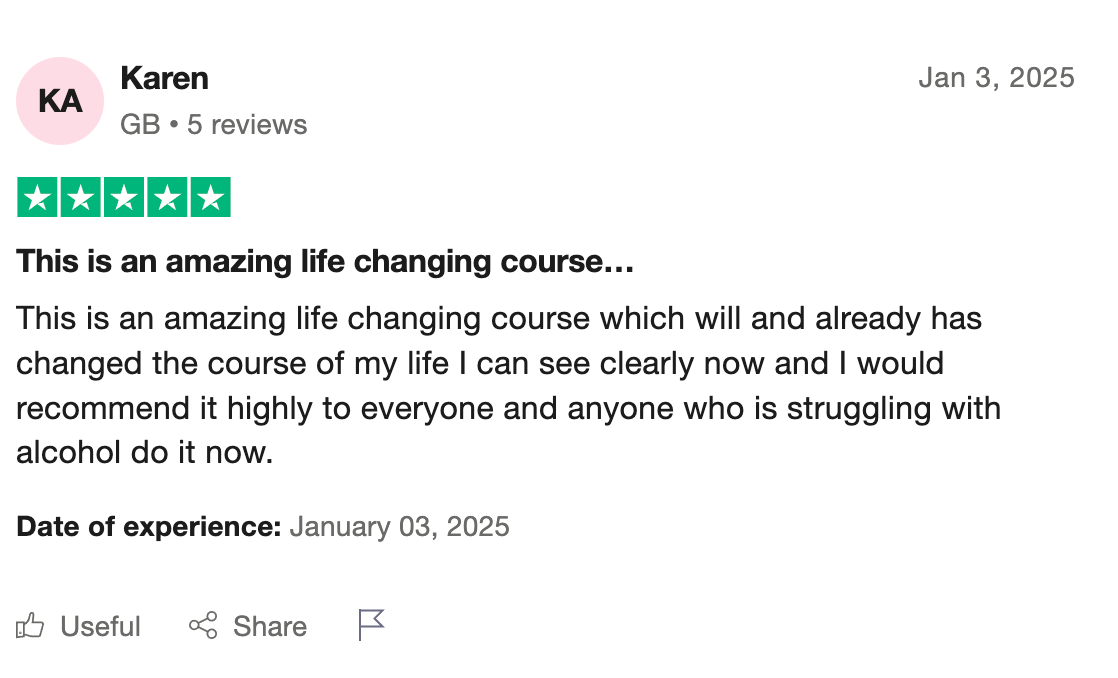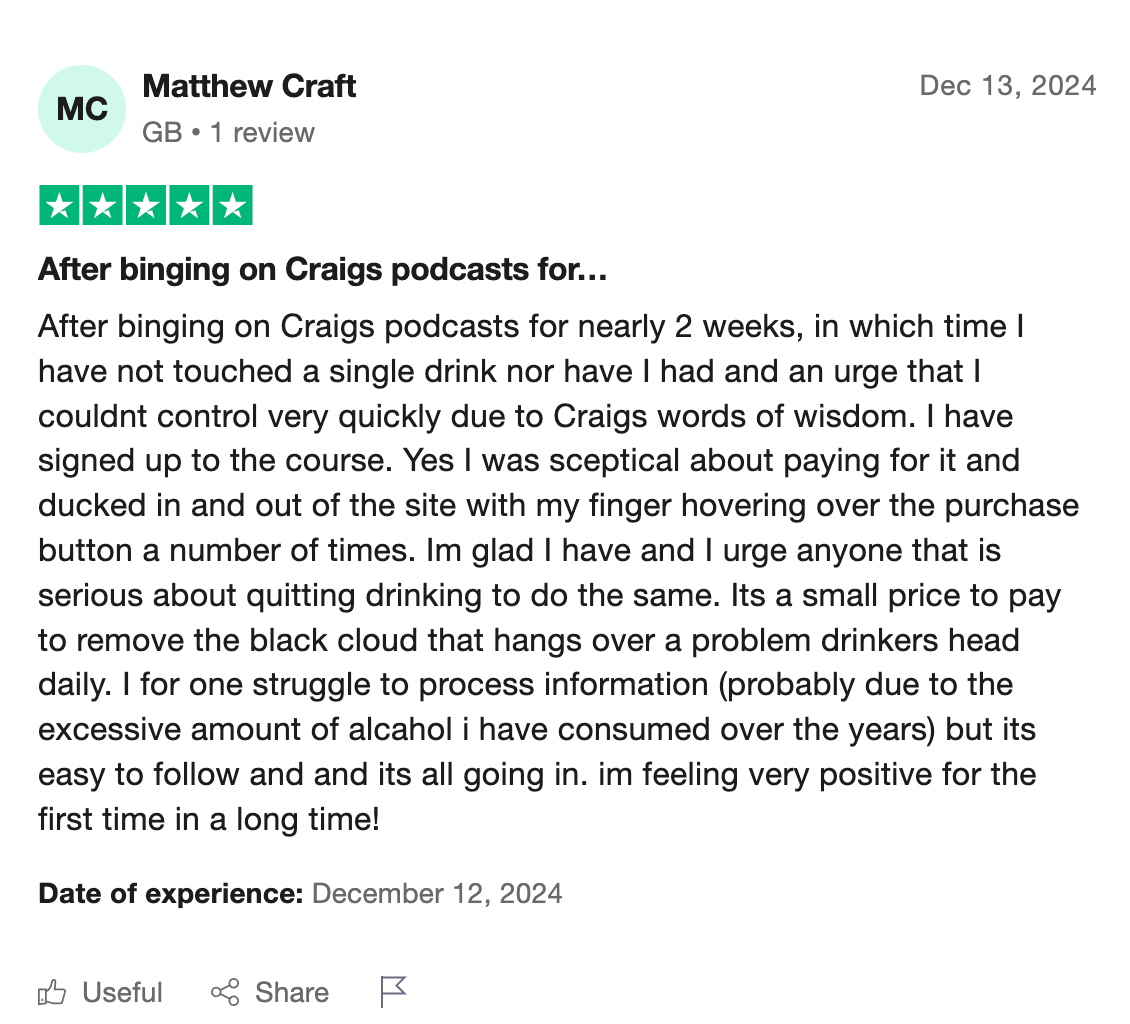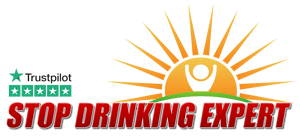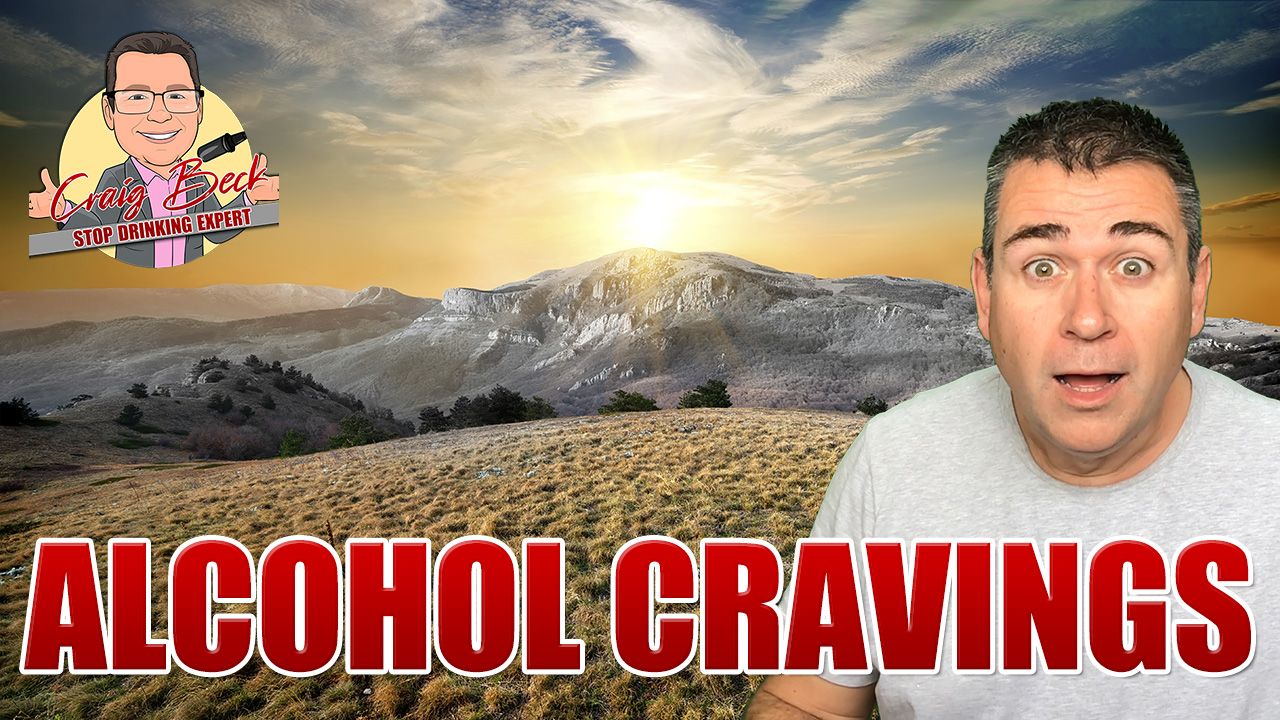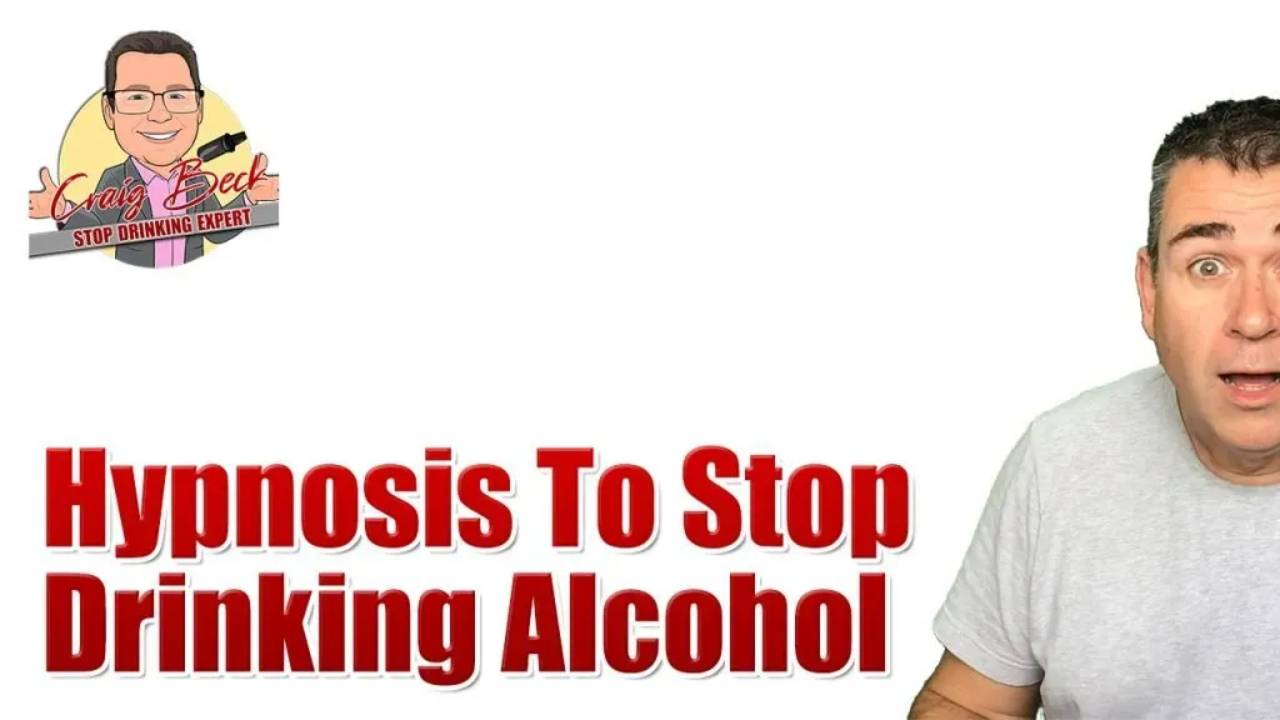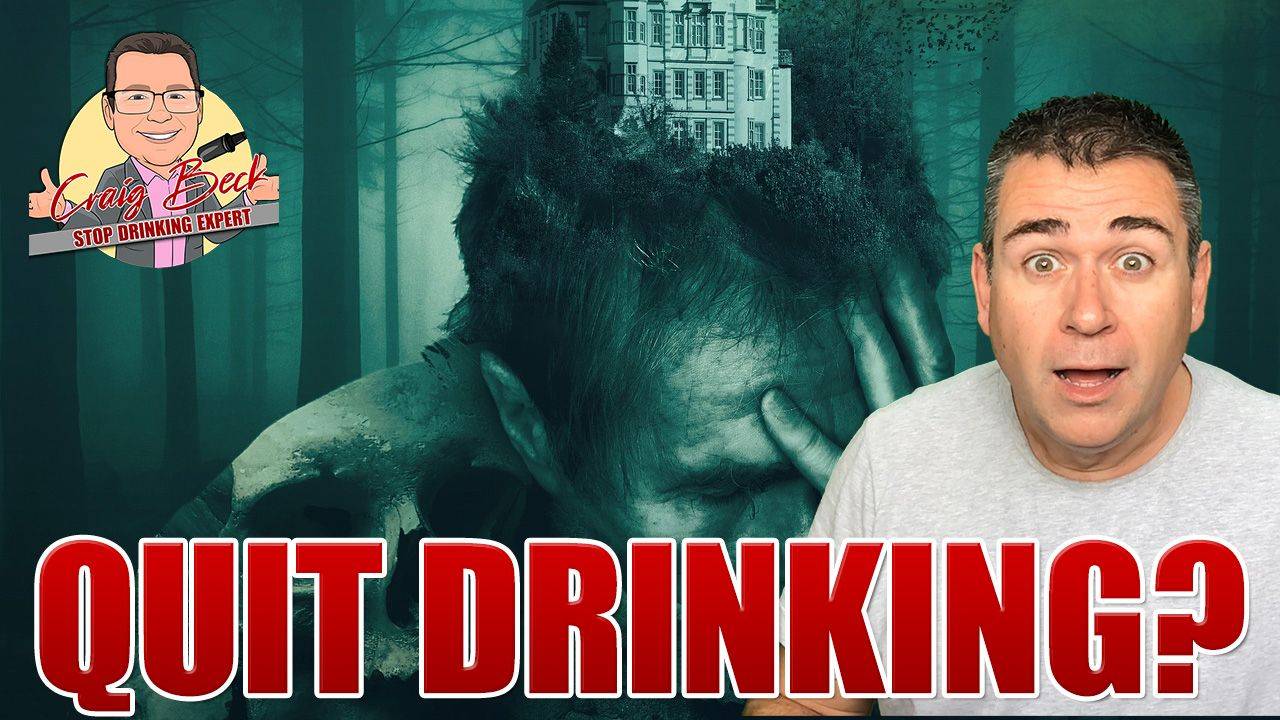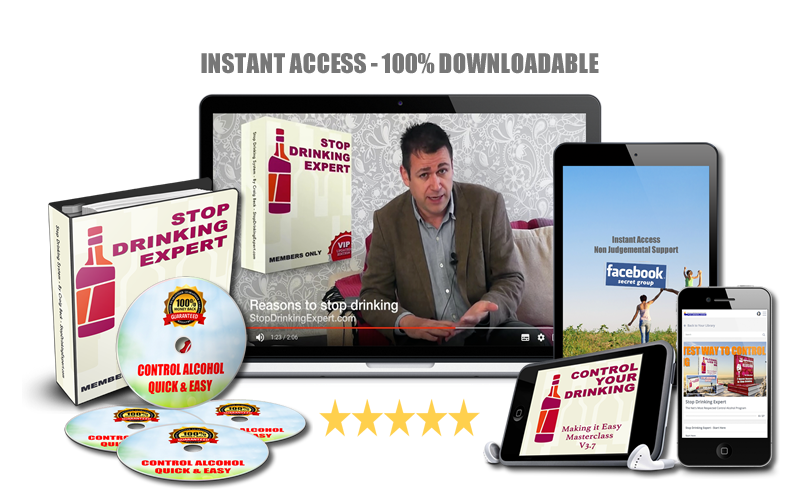How To Stop Alcohol Cravings
Picture standing in front of a neon lit bar while something deep inside whispers that you deserve another drink. That inner voice is sneaky yet you are not alone. Millions fight the same craving every evening so let us shine a friendly torch on it right here. In this guide you will learn practical steps to tame that itch without resorting to gimmicks or magic wands.
Before we dive into tactics let us agree on one truth. You are not broken. Cravings run on a wiring system that evolved to keep humans alive by chasing pleasure and avoiding pain. Alcohol hijacks that wiring like a cheeky hacker altering the code. Once you see the trick you gain the power to yank the plug. We will do it together right now so keep reading.
Some experts shout about willpower as if it were a bigger hammer. Craig Beck who founded the Stop Drinking Expert programme knows better. He discovered that knowledge plus a shift in perception beats white knuckles every single time. The good news is perception is flexible like warmed wax. With a touch of curiosity and the right questions your mind can reshape the story you tell about that glass of wine.
We shall explore food choices breathing drills mindset pivots and even the odd dash of humour. All the methods are grounded in science and lived experience not glossy slogans. While you read imagine that you are sipping clear water from a frosted glass and notice how the body feels. That simple practice alone starts rewiring expectation. By the final line you will have a blueprint you can use tonight.
Craving Biology 101
Cravings surge because the brain releases dopamine when it anticipates alcohol. Dopamine is the chemical messenger that once guided early humans to ripe fruit and safety. Today it fires at the sight of a chilled beer and most folk mistake that signal for destiny. Recognising the messenger is step one. When you feel the tingle behind the forehead say to yourself fascinating my brain is running prehistoric software.
A quick breathing technique can lower the wave before it swamps you. Exhale fully then inhale through the nose for four counts hold for four and release for six. Repeat three cycles. This simple ratio nudges your vagus nerve which calms the stress response like turning down a fiery oven. Breath practice looks almost invisible so you can do it at the office queue or family dinner without odd stares.
Another lightning fast tactic involves changing the scene. Craving grows in still air like mould so move. Step outside stretch your arms or phone a friend. If you usually experience urges when drinking alone create a little ritual that brings company such as sending a quick text to a sober buddy. Disrupting the script cuts the craving before it reaches act two. Repeat the switch until it becomes automatic.
Food also plays a sneaky part. Low blood sugar mimics alcohol hunger and triggers that hollow pit feeling. Keep protein snacks like almonds or hummus handy and you cancel the false alarm. Drink a tall glass of water because thirst often dresses as desire for wine. Simple physical care beats complicated strategies that coûte the earth. Your body will thank you with steadier moods and clearer mornings.
Mind Tricks That Work
Let us wander into mindset territory. The story you whisper about alcohol decides whether cravings look like roaring lions or tiny kittens. If your inner monologue says gin relaxes me the brain will hunt evidence to confirm it. Flip the script. Whenever the thought pops up respond gently yet firmly actually alcohol raises my heart rate and steals deep sleep. Repeat the new truth until it sticks like a catchy tune.
For example many clients believe booze soothes sadness yet clinical studies show the opposite. Regular drinking doubles the risk of depression. Check the numbers later by reading this quick breakdown. When the logical brain sees hard evidence the emotional brain often follows. That alignment drops the temperature of cravings because nobody yearns for a beverage that is clearly labelled mood thief. Give science a seat at the table.
Another neat mind trick borrows from elite athletes. Visualise tomorrow morning with cinematic detail. See yourself waking early stretching without a pounding skull and enjoying fresh coffee. Hear birds outside rather than the rattle of a headache pill bottle. When you place that vivid snapshot beside a muggy memory of hangover the sensible choice shines. The human brain loves pictures so feed it optimism instead of fear.
Stacking benefits also helps. Each sober evening saves cash clears skin and rekindles real conversations. One reader said she regained the twinkle in her daughters eyes within weeks. You can browse many more wins on the benefits of quitting drinking page and feel hope grow. The more positives you collect the less space remains for the old illusion of comfort.
Body Hacks That Silence the Beast
Cravings cannot survive well oxygenated muscles and moving joints. Do not panic you need not sign up for an iron man race. A brisk ten minute walk flips neurotransmitters from restless to content. Each foot strike releases endorphins tiny molecules of natural euphoria. Walking outside also exposes you to daylight which resets circadian rhythm and cuts evening appetite for alcohol. Throw on trainers and treat the pavement like cheap therapy.
Resistance training adds another layer. When you push against weight the body releases growth factors that boost mood and cognitive clarity for hours. That hormonal cocktail competes directly with the promised buzz of beer and usually wins hands down. Start with push ups or squats in the living room. Nothing fancy. Consistency not intensity creates the magic. Ten reps today beat fifty next month that never happen.
Hydration slips under the radar. Dehydration feels similar to craving because it causes fatigue and brain fog. Fill a large jug in the morning and aim to empty it by dinner. Many readers swear by adding a pinch of sea salt for minerals. Some even mix a squeeze of lime to pretend it is a fancy cocktail. Simple nutritional tweaks spark energy and reduce the siren call of booze.
Speaking of nutrition a few evidence based supplements may smooth the path. B vitamins repair nervous tissue after years of drinking and magnesium calms restless legs at night. For a deeper dive check the supplements guide later on the blog. Remember supplements are helpers not saviours. Focus on whole foods first then fine tune. Your future self will cheer from the sidelines. Stick to consistent doses and track your response.
Social Strategies for Real Life
Some people fear cravings most when socialising. The sight of colleagues clinking glasses can trip even the steadiest resolve. Have a plan before you arrive. Decide on a sparkling water with lemon or an alcohol free beer. Practise ordering it aloud during the ride. When you reach the bar speak clearly without excuses. Confidence is contagious. Within minutes someone usually copycats your choice which reinforces your decision.
Conversation can drift toward why you are not drinking. Keep your answer short and upbeat. I fancy waking fresh tomorrow often ends interrogation. Shift focus onto shared stories or ask curious questions. People love talking about themselves. If boredom creeps in recall that drinking to cope with boredom never solved the boredom puzzle it simply paused the clock. Engage and watch time fly. Try it at your next outing.
Support networks matter more than most realise. One Harvard study found that strong social ties increase survival odds to the same extent as quitting smoking. Sobriety circles online or in person provide fresh ideas humour and accountability. Choose a group that lifts you rather than shames you. When you share victories your brain gets a second reward. Helping others cements your own progress like wet cement hardening under sunshine.
Remember that family dinners and weddings can test patience. Bring a discreet exit plan. Maybe volunteer to drive so you have a graceful excuse to leave early. Maybe promise your favourite series a date back home. Knowing you can walk away reduces tension and cravings shrink. Freedom breeds calm. Eventually you might stay until midnight yet still choose sparkling water because the habit of clarity feels too good to surrender.
Evening Routines That Crush Urges
Cravings often sneak in during twilight when brain and body crave relief. Swap the old bottle ritual for a self care ritual that feels indulgent. Light a vanilla candle put on lo fi jazz and run a warm bath. Sensory pleasures satisfy the same reward pathways without the toxic aftershock. While you soak read a chapter of a thriller or of course a few pages from Alcohol Lied To Me.
Craig offers the digital version free at StopDrinkingExpert dot com. Download it today and store it on your phone. When temptation whispers simply open the file and skim a random passage. The logical rebuttals inside slice through mental fog faster than a hot knife through butter. Knowledge in your pocket beats a locked cabinet full of spirits every single time.
Another masterstroke is tracking sleep. Use a simple app or a journal to note bedtime and waking refreshment. After seven alcohol free nights most people report deeper slumber bright skin and a calmer gut. The data becomes personal proof. Humans treasure proof they collected themselves more than lectures from experts. Watch your graphs climb the good direction and cravings will lose the argument without you saying a word.
If you stumble do not label yourself a failure. Stumbles teach. Write what happened who was present what emotion pulsed through you and what you might do differently next round. Pilots log flight errors so they avoid repeating them. You are piloting your life. Use the same curiosity and course corrections. Progress is rarely a straight line it resembles a mountain path with gorgeous views around every bend.
Morning Mindset for a New You
Dawn offers a clean slate. Start with gratitude before you even swing feet onto the carpet. Name three blessings aloud. Research from the Greater Good Centre at Berkeley shows that spoken gratitude increases dopamine in the same reward centres that alcohol once tickled. You are essentially giving your brain what it seeks minus the poison. Smile at that idea it is both clever and a tad cheeky.
Follow gratitude with movement. Ten sun salutations or a quick jog stirs circulation strengthens heart muscle and stabilises blood pressure. Alcohol by contrast spikes pressure in the morning according to peer reviewed papers. Feel your chest open as lungs expand. Vitality is the reward for wise choices. Keep the routine simple and repeatable. The sunrise air alone feels like a legal stimulant that lifts spirits.
Finally set a tiny intention for the day. It could be I will drink two litres of water or I will call my sister. Small wins stack like Lego bricks forming a sturdy wall against cravings. When evening arrives you will stand on that wall looking back at the hours conquered. Drinkers chase the illusion of control sober folk calmly build genuine control brick by brick.
Take the Next Step
You now possess a toolbox brimming with science backed strategies quick rituals and mindset switches. The next step is simply to act. Tap the link below to grab your free copy of Alcohol Lied To Me and join thousands who broke free. Imagine waking tomorrow grateful and clear and notice that the craving already feels lighter. The journey begins where you stand so take one confident stride.
Further Reading
- Quit Drinking Today
- Omega 3 and Alcohol
- How to Cut Back on Drinking
- Zero Alcohol Tips
- Sober Dating Guide
References
- Grant BF et al. (2015) Epidemiology of Alcohol Use Disorder. JAMA Psychiatry.
- Koob GF and Volkow ND. (2016) Neurobiology of Addiction. Neuropsychopharmacology.
- World Health Organization. (2018) Global Status Report on Alcohol and Health.
More Helpful Quit Drinking Advice
Does this sound familiar?
- Drinking to escape stress and to cope with the pressures of life?
- Waking up full of guilt and regret that you drank again last night despite promising that you wouldn't?
- Hiding alcohol or the evidence of your drinking?
- Feeling like you are living a double life because of your drinking?
- Creating silly rules to try and control your drinking (e.g., I will only drink on special occasions)?
The good news is that you are not alone; the better news is that I can help.
Meet Craig Beck, The World's Most Respected Sobriety Coach
Craig Beck, better known as “The Stop Drinking Expert”, turned a 20-year battle with alcohol into a roadmap for lasting freedom. The bestselling author of Alcohol Lied to Me and The Sobriety Secret discovered that traditional routes like Alcoholics Anonymous can feel embarrassing, public, and all too often, entirely ineffective.
His method is different. It shows you:
- Why you drink in the first place—the hidden brain loops alcohol hijacks.
- How to switch off cravings before they even start.
- A willpower-free exit plan you can follow privately, at your own pace—no labels, no awkward meetings, no medication.
Hundreds of thousands worldwide now wake up clear-headed, proud and at peace thanks to Craig’s approach. Will you be the next?
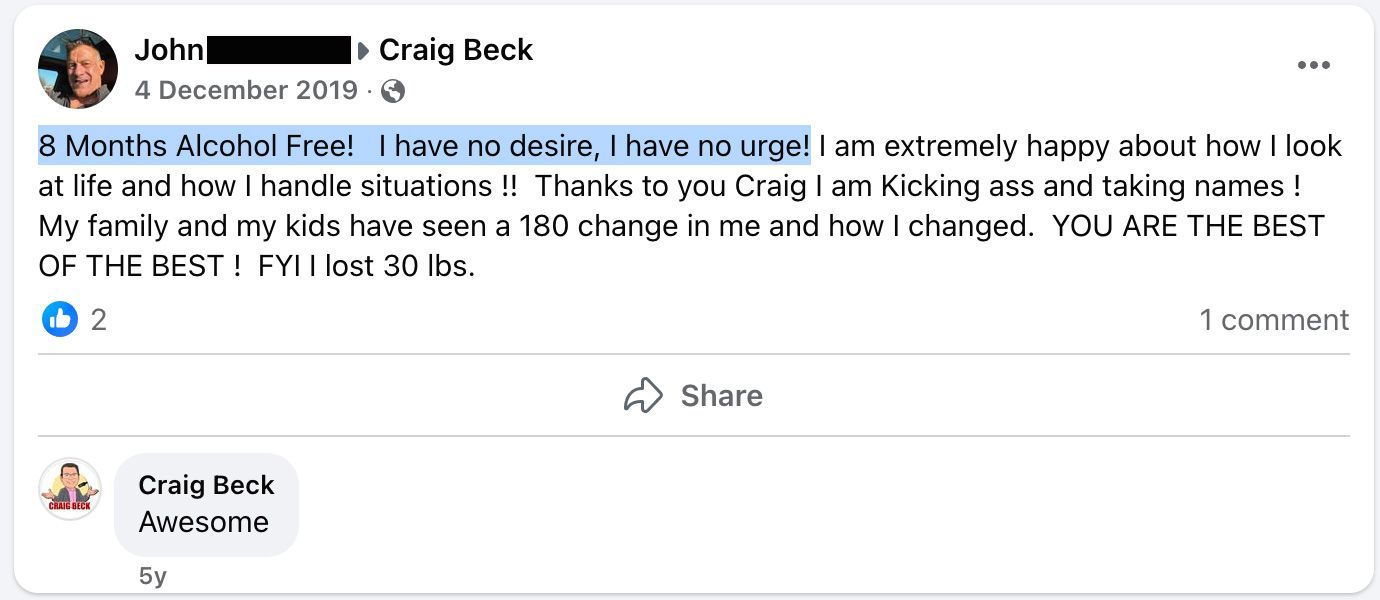
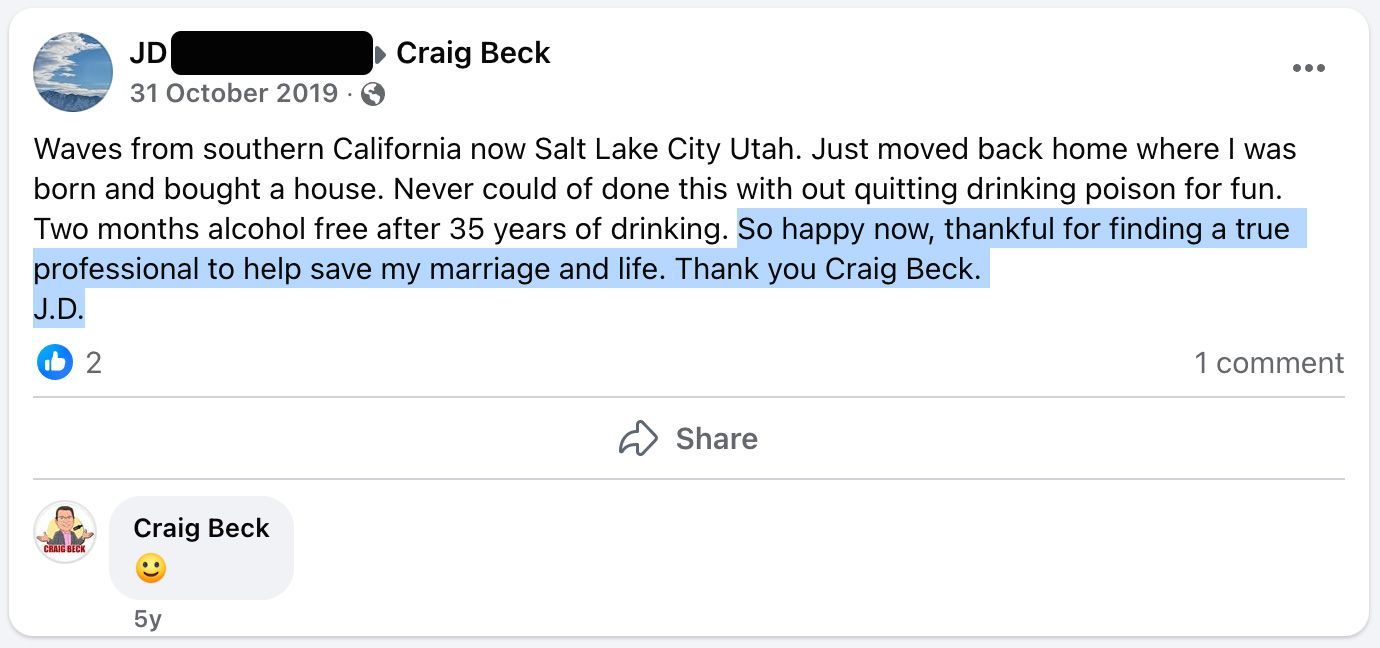
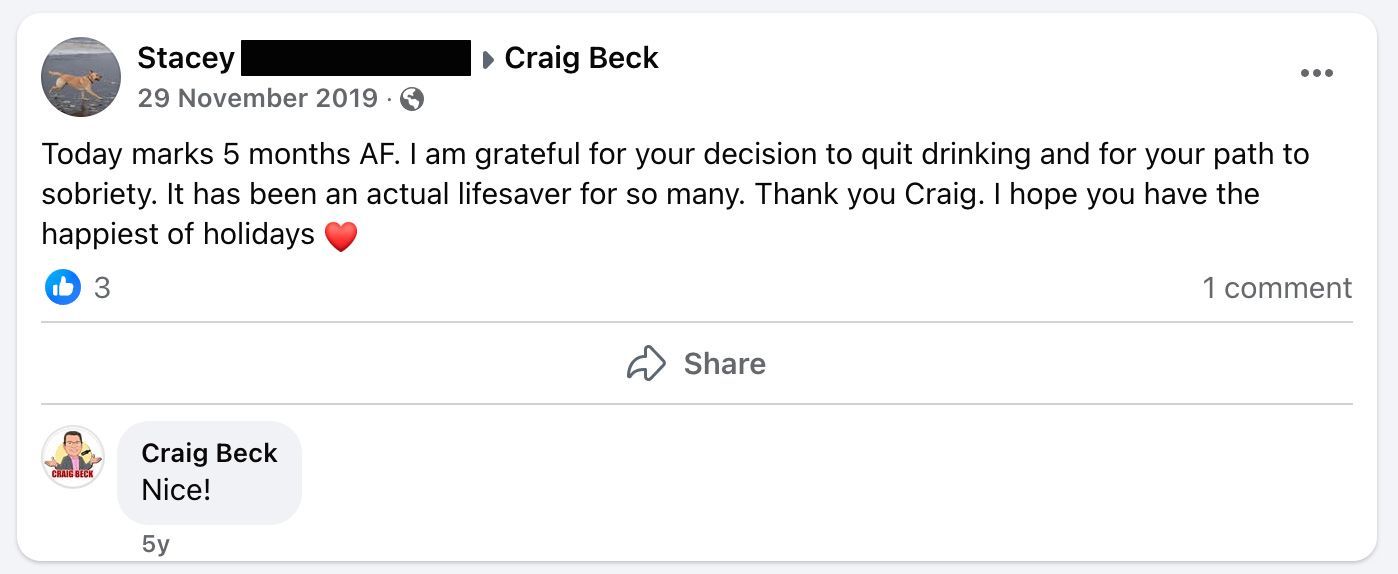
"Effortless Sobriety: The Proven Path to End Problem Drinking"
No one likes asking for help with their drinking—it feels personal and heavy. But if willpower alone hasn’t worked, it’s not because you’re weak. Research indicates that relying solely on grit is unsuccessful approximately 95 percent of the time. You’ve simply been using the wrong tool for the job.
Download my free ebook or decide now get started with the full course and learn:
- Why the game is rigged: how alcohol rewires your brain chemistry and makes “just trying harder” almost impossible.
- A science-based exit plan: practical steps that work quickly, privately, and on your terms.
- No awkward meetings or risky meds: forget the gimmicks—this is about smart strategy, not shame.
`Are you ready to step onto solid ground? Get off the fence, take action, and start taking back control—quickly, confidently, and without the struggle.
Over 250,000 Happy Sober Clients Can't Be Wrong:






